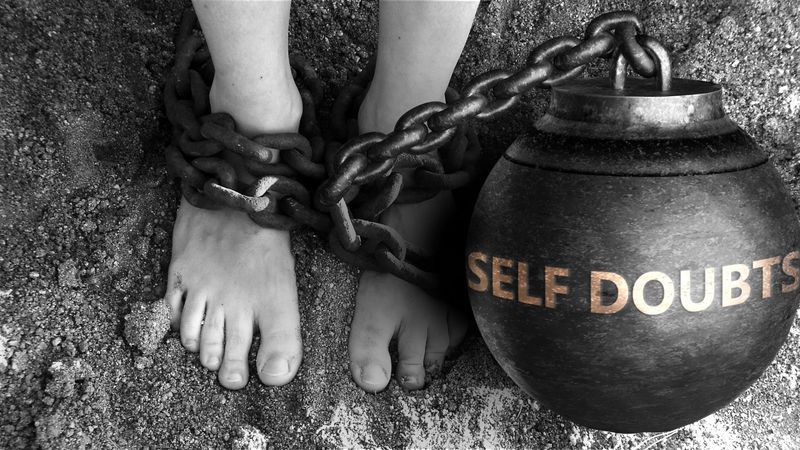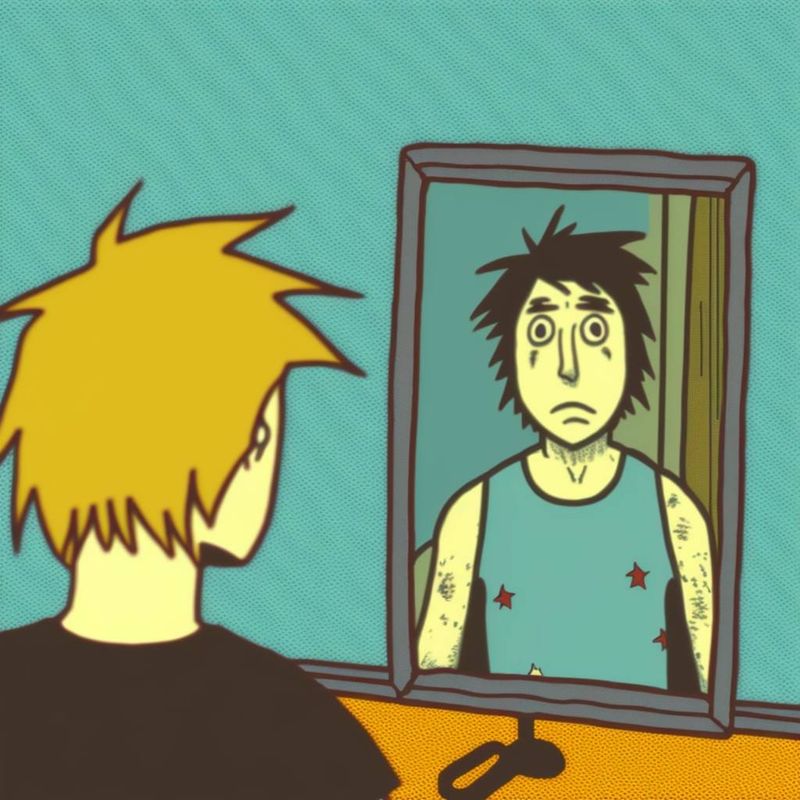16 Signs Your Partner Brings Out The Worst In You
Discovering that the person you’re with brings out the worst in you can be an unsettling realization. It’s essential to recognize the ways in which your relationship might be affecting your emotional well-being and personal growth.
Here are 16 signs to help you identify whether your partner might be contributing negatively to your life.
1. You’re constantly defensive, even over small things

In the beginning, you were calm and patient. Now, with every small remark or suggestion, you feel a need to defend yourself as if on trial. This defensiveness creeps in unexpectedly, even turning mundane conversations into battles. It’s not about the dishes or that show you watched together; it’s a deeper instinct to protect your sense of self.
You might find yourself recalling words you wish you’d said or rehearsing responses for imagined scenarios. While assertiveness is healthy, this level of defense can erode trust and intimacy, leaving you both feeling isolated.
Consider whether these smaller conflicts are symptoms of a bigger issue in the relationship dynamic.
2. You start picking fights to feel heard

In what was once a peaceful relationship, you now find yourself starting arguments just to get a reaction. There’s a strange satisfaction in the raised voices because, for a moment, you have their attention. This isn’t about the argument itself but the desperate need to feel acknowledged.
Picking fights can become an unhealthy pattern, overshadowing genuine communication. You might not even care about the topic at hand but rather seek validation in the engagement.
Consider what you’re truly seeking in these moments. It might be time to reassess how you both communicate your needs and explore more constructive ways to connect.
3. You’ve become reactive instead of reflective

Once, you might have taken a moment to breathe, but now, you respond with knee-jerk reactions. The smallest triggers set off a cascade of emotions that spill out before logic can intervene. It’s as if reflection has taken a backseat to immediate response.
This shift can lead to misunderstandings and emotional volatility, as quick reactions often do not capture your true feelings. The lack of pause can hinder meaningful dialogue and problem-solving.
Try to rediscover the reflective nature you once had. Moments of calm can offer clarity, helping to rebuild a foundation of understanding and empathy.
4. You hide parts of yourself to avoid arguments

In an effort to maintain peace, you’ve started concealing aspects of who you are. Your opinions, interests, or even dreams are tucked away to avoid sparking conflict. The person you present is a curated version, sanitized to prevent disputes.
This self-censorship can lead to a loss of identity, as you become more a reflection of what your partner desires than who you truly are. The fear of disagreement stifles genuine connection, leaving a silent void.
Reflect on the parts of yourself that you miss sharing. Genuine relationships thrive on authenticity and mutual respect for individuality.
5. You feel jealous or competitive in ways that aren’t like you

Once supportive and secure, now you find yourself comparing achievements and feeling envious of your partner’s successes. This jealousy isn’t typical of you, yet it creeps in, highlighting insecurities you didn’t know you had.
Competitiveness in love can erode the foundation of support and partnership that relationships are built on. The envy overshadows genuine happiness for one another, breeding tension where once was harmony.
Explore the roots of this jealousy. Often, it can be a signal to focus on your personal growth or realign your shared goals.
6. You say things you regret—regularly

Words can be weapons, and lately, you’ve been using them more recklessly. Moments of anger lead to hurtful comments that echo long after they’re spoken. Regret becomes a frequent companion as you wish you could unsay the things that slipped out.
The cycle of saying hurtful things and apologizing can strain the bond, making it harder to heal with each new scar. It highlights unresolved emotions bubbling beneath the surface.
Focus on finding healthier outlets for these emotions. Communication should be a bridge, not a barrier, to understanding and connection.
7. You’re exhausted after spending time together

Instead of feeling rejuvenated after time spent with your partner, there’s an overwhelming sense of fatigue. Conversations feel like an emotional workout, and activities leave you drained rather than delighted.
This exhaustion can be a sign of emotional discord, where maintaining the relationship feels more like a chore than a choice. The constant need to navigate tension and misalignment saps joy from shared moments.
Consider what aspects of the relationship are most draining. Understanding these can help you both work towards a more balanced and fulfilling connection.
8. You’ve stopped caring about things you used to love

Passions and hobbies that once brought you joy now sit neglected. The vibrancy they used to bring to your life is overshadowed by the weight of the relationship’s demands. It’s as if your personal interests have been placed on hold.
The disinterest in things you once loved can signify a deeper disengagement from your authentic self. Sacrificing these passions often leads to resentment and a sense of loss.
Reconnect with these parts of yourself. They were integral to your happiness and can provide a refreshing perspective on your current situation.
9. You second-guess your intuition

There was a time when you trusted your gut without hesitation. Now, doubt clouds your decisions, making you question every instinct. This lack of confidence in your intuition reflects a deeper erosion of self-trust.
Second-guessing can lead to a paralyzing indecisiveness, where even simple choices become overwhelming. It’s a reflection of being in an environment where your feelings are consistently undermined or dismissed.
Rebuilding trust in your intuition is vital. It begins with acknowledging your feelings and giving them the respect they deserve.
10. You find yourself apologizing too much—or not at all

Apologies used to be meaningful exchanges, but now they’re either overused or not given at all. You might constantly apologize to keep the peace or, conversely, refuse to apologize as a form of self-preservation.
This imbalance in addressing conflicts can create a rift, where apologies lose their sincerity or become non-existent. It’s a reflection of the larger communication issues within the relationship.
Assess how apologies are handled. Genuine apologies nurture healing and understanding, fostering a healthier relational dynamic.
11. You feel the need to “win” instead of understand

Arguments have shifted from seeking understanding to wanting to come out on top. The satisfaction of being right overshadows the resolution and harmony that understanding brings.
This competitive approach can create distance, as it prioritizes ego over empathy. Winning becomes more important than resolving issues, creating a cycle of conflict rather than connection.
Focus on communication that nurtures rather than divides. True intimacy grows from understanding and partnering, not from one-upmanship.
12. You make decisions out of fear, not trust

Choices are now guided by fear of judgment or conflict rather than trust and mutual respect. The anxiety of potential repercussions looms large, influencing even the smallest decisions.
When fear dictates decisions, it suggests a lack of safety within the relationship. Trust is foundational, and its absence can create a precarious emotional environment.
Work towards rebuilding a sense of safety where decisions are a reflection of mutual respect and confidence rather than fear.
13. You become cold or sarcastic just to protect yourself

Once warm and open, you’ve started using coldness or sarcasm as a shield. These defenses emerge when vulnerability feels too risky, turning genuine interactions into guarded exchanges.
Sarcasm and coldness can perpetuate misunderstandings, as they mask true emotions. These barriers hinder deeper connection and reinforce emotional distance.
Reflect on what you’re protecting and why. Understanding these defenses can help you approach vulnerability with renewed courage and authenticity.
14. You tolerate behaviors you once said you never would

Remember the boundaries you once held firm? Now, they seem blurred, as behaviors you vowed never to accept have become part of your relationship landscape.
Tolerating these behaviors might be a compromise you’ve made for the sake of the relationship, but it often leads to resentment. This shift erodes self-respect and distorts your sense of what’s acceptable.
Reevaluate these compromised boundaries. Restoring them can be a crucial step towards restoring your self-worth and relationship health.
15. You feel lonelier together than when you’re alone

In the company of your partner, you feel an isolation deeper than being alone. Conversations lack depth, and interactions feel more like going through motions than genuine connection.
This loneliness in togetherness suggests a significant emotional gap, where presence doesn’t equate to companionship. It can feel like you’re both inhabiting different worlds despite sharing the same space.
Explore ways to reconnect emotionally. Sometimes, addressing the root of this disconnect can help both partners find their way back to each other.
16. You miss who you were before the relationship

Looking back, you remember a version of yourself that was more carefree, confident, and content. The relationship has shifted your self-perception, leaving you longing for who you used to be.
Missing your former self can signal a detachment from your core values and passions, replaced by compromises made for the partnership. This longing can foster dissatisfaction and regret.
Rediscovering yourself involves honoring the past while embracing growth. Reflect on what aspects of yourself you wish to reclaim and how they can coexist with the present.







